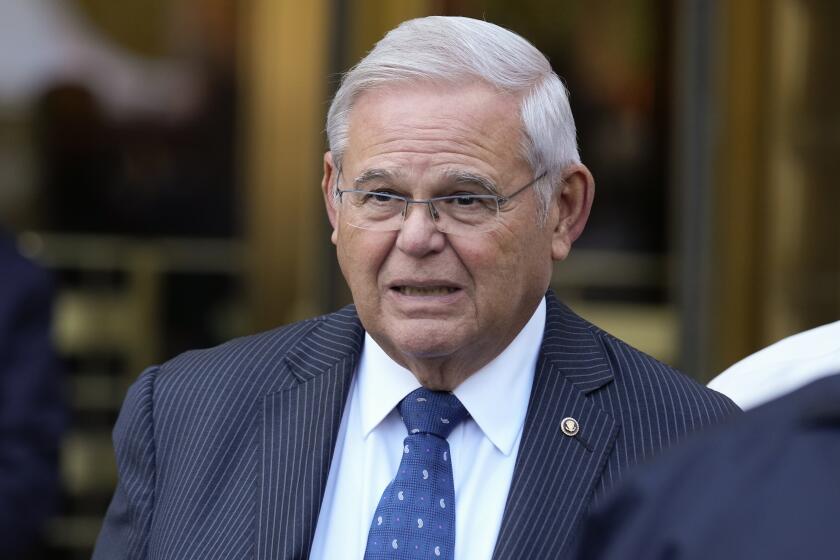Look Kwik! This Iz Eezier for Yu tu Reed, Teechur Sez
You spell it easy, he spells it eezi. You want quick results, he wants kwik rezults.
If you want to call the whole thing off, language buff and activist Ted W. Culp probably would tell you to wait becuz victori is inevitabel in this linggwistic endevor.
Culp is the president and founder of the Internasional Union for the Canadian Langwaje, which campaigns for reforming English into Canadian--he says Canadean--as an international language.
“Half the battle is already won because people know that reformation needs to be done,” he said. “There’s a universal recognition that there’s a problem with the English language.”
Culp declined to say exactly how many people belong to his admittedly small organization, but he insists that he has members and contacts scattered around the world.
And, if you’re wondering why a reformed English should be called “Canadean”--well, why not?
“All the other languages of the world are linked to a nation,” Culp said. “When they’re linked to a nation, it removes any sense of fear. The world needs an international language, but it needs one that’s rational.”
Talking over coffee at a neighborhood fast-food restaurant, Culp detailed why he thinks the soft “c” in English should be changed to “s” as in “sentense,” why Czechoslovakia should have been changed long ago to Checkoslovakia, why “Fast as Flite” on trucking slogans reads just fine to him and why the large American toy-store chain should change its name to “Tois Ar We.”
He puts out regular nuzeletters and has started a small nuzepaper, The Times Ov Toronto, that has made it through three four-page issues.
“We urj all owr reeders tu abandon the obsolete, anoying english langwaje, and tu adopt the emerjing, rasional canadean langwaje,” an editorial calling for linggwistic chanj said. “It iz so eezi. . . . “
Culp, a gray-haired secondary-school teacher, said he always was interested in language and created his Canadian in 1987, the centenary of the artifical language Esperanto that had been touted as the way to an international communication.
“There’s no sense creating a language that no one speaks,” he said of Esperanto and its late founder, the Polish philologist Ludwig Zamenhof. “That’s the fatal weakness from which it will never recover. . . . It was just the wrong strategy.”
“Canadean,” on the other hand, would take advantage of the prominence of English as an international language but make it easier for foreigners learning English who often are confused by its spelling and grammar.
“Using the world’s No. 1 language, you can read and understand this,” he said. “In ‘Canadean’ you must say what’s there.”
Culp said the rules for Canadian appeal to those who have problems spelling as well as those with scientifically educated minds who prefer their systems to be rational. The increasing use of computers and computer languages can only help the move to develop a more rational language, he said.
Among the rules for “Canadean” are an alphabet with 25 letters, eliminating “q” from the current Latin-English alphabet; the addition of a verb “tu must,” as in “yu must tu work,” and the elimination of all silent and extra letters.
Culp conceded that his language work would have to be developed over the long term.
“There’s a tendency to linguistic conservatism,” he said of those reluctant to change. “People say it’s the richness of the language, but it’s very rich nonsense.”
More to Read
Start your day right
Sign up for Essential California for news, features and recommendations from the L.A. Times and beyond in your inbox six days a week.
You may occasionally receive promotional content from the Los Angeles Times.






